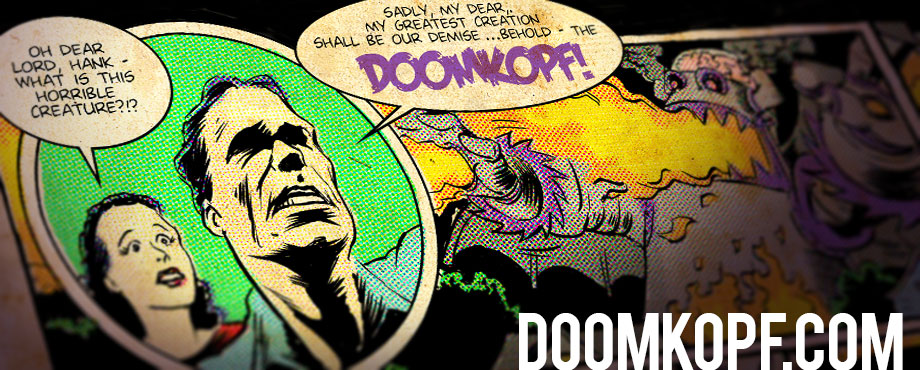Swamp Thing, Alan Moore and radicalism
Salon had an interesting piece today on Swamp Thing and Alan Moore’s politics in the midst of so much Reagan. It can be found here.
While nothing staggeringly ground breaking, it does make a lot of connections to attempted counter-culture movements of the time:
It’s been said that Moore was ahead of his time by infusing a holistic, ecological perspective into comics in 1984, and that his anti-authoritarian politics, sometimes bordering on anarchism, were unusual and daring amid the so-called Reagan revolution. But that overlooks the fact that the radical environmental movement was rapidly gaining steam among the American left — Earth First! had been founded in 1979 — and in a climate of deepening economic recession and widespread youth unemployment (hello!), the summer of 1984 would see large, anarchist-influenced “punk protests” at the Democratic convention in San Francisco.
Moore was right on time and right on message for a specific micro-generation of young people who were disillusioned and disgusted by Reaganism, and had lost any sense of connection to the American dream. Our consciousness had been shaped — as Moore’s clearly was — by Joe Strummer and Johnny Rotten (Moore had actually written a screenplay for Sex Pistols impresario Malcolm McLaren), by Kurt Vonnegut and Thomas Pynchon, by campus organizing against apartheid and the U.S. proxy war in El Salvador. With his near-total divorce from human ethics balanced by his planetary consciousness, Swamp Thing became perhaps the first postmodern comic-book hero.
and finishes with:
He gave a generation of suburban nihilists, fueled by black coffee and loud guitars and soulless temp jobs, a creature from the swamp who seemed to embody their desire to destroy and their urge to create. It was something to believe in, at last.
A nice retrospective on a series that is overshadowed by “V for Vendetta” and “Watchmen,” but was no less instrumental in bringing a new, more radical lexicon and maturity to the comic form. Plus, if you think “Watchmen” was hard to adapt into movie form, this is probably even more so.
It’s interesting to think of Alan Moore’s work in a decidedly political context, as it took some deeply rooted anti-establishment ideas and turned them into funny books. Even “Watchmen” has, as one of its many, many themes, a sort of “futility of superheroics” motif, as if questioning the idea of governance in and of itself. After all, why does Ozymandias have to use a deadly, Lovecraftian ruse to justify his own heroic authority? Maybe it’s a little ahead of it’s time in that fashion.
And of course, we have “V for Vendetta,” a graphic treatise on anarchism, arguing that ultimately, government is a system of control, and that V, in his anti-heroic way, was not a hero or liberator so much as a person driven to violent reaction by a system whose government had stretched its authority to a breaking point.
So in Swamp Thing, we find the hegemony of the human race itself stripped – we’re no longer the chosen, but part of a grander picture we continuously undermine in efforts to “improve” our own way of life at the cost of nature. By removing Alec Holland from the Swamp Thing, Moore was able to drive a wedge even further into the nature vs. man theme.
It stretches further into his other works, with “Batman: The Killing Joke” reflecting that the sides of the argument are all that separates Batman from the Joker. They’re both crazy men playing dress-up for their own reasons.
While Grant Morrison embraces a sort of whimsical, chaotic anarchy, a la “The Illuminatus Trilogy” in many of his works, Alan Moore is able to ground it in a more serious way by taking punk ethos and making thought provoking words and images that weave themselves into something of an essay.
Thoughts?

[…] you’re going to love Wood’s more apparent attitude. Doominator already touched on Moore’s anti-establishmentarianism in a previous post, which is something I previously never overtly attached to his name, but reading […]